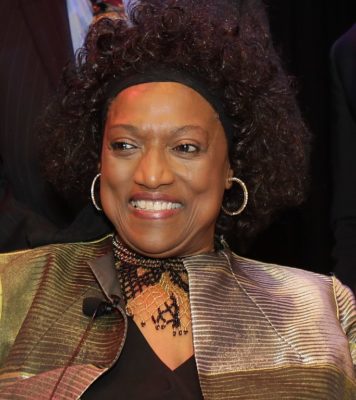
In a 1992 interview, renowned opera legend Jessye Norman talked about her development as an artist, offering what I took to be a life lesson.
“There can be no professional career without studying,” Norman said. “One needs to know what music is about.”
Then, referring to the practice of her craft, she spoke of the “magic moment,” a time when one is ‘‘released from technique and gives oneself over completely to the music, allowing it to happen.”
Norman, who died this past September at age 74, went on to describe herself in these magic moments as “completely committed to being on stage and doing it, not daydreaming or thinking about something else.”
Those are the times, she said, when each person in an audience feels connected and as if she is singing directly to each of them, a delicate balance between discipline, spontaneity and empathy.
Internationally-acclaimed musician Wynton Marsalis referred to jazz as music of conversation, requiring a willingness to hear another person’s point of view and to respond to it. In a democracy and in jazz, according to Marsalis, you have freedom with restraint.
“It’s not absolute freedom, it’s freedom with structure,” he said.
Marsalis’ and Norman’s lessons resonate for me as a parent and mental health professional. All kids strive to find themselves, to be good at something, to belong.
Nevertheless, growing up today, especially for teenagers, is a time of particular vulnerability, when young people are facing increasing social and educational demands, and experimenting with more freedom, autonomy and choice than ever before.
Marsalis spoke of freedom and restraint and Norman talked about letting it happen. I think they’re speaking of risk as well as discipline. For parents, throughout their children’s development, there is an unsettling tension between balancing freedom and structure, understanding that a child’s job is to explore and a parent’s job is to protect.
Their message: Risk-taking that transcends structure—freedom with restraint—makes all the difference. In other words, you need both to experiment and strive to reach your potential. Not perfection. Potential.
Fifteen-year-old Nikki Reed, who co-wrote the screenplay for the harrowing independent film Thirteen, was asked why the teen years are so difficult. Her answer: “Perfection is crammed down our throats. We’re surrounded by models who can wear shirts shorter than my bra and have perfect abs. Everyone is trying to be perfect and without Photoshop, it’s not possible.”
We are concerned about the risks that our children take that might lead them down a dangerous path. And so, we offer structure and support. But are we as deeply concerned about the tyranny of perfection that they feel they may not measure up?
Parenthood is a hard job. We want our kids to be safe, to be connected to others in meaningful ways and to become accomplished, and so we offer discipline and structure. We want them to experience the world and so we offer them freedom and support.
We try to find the right balance. We try our very best to mitigate against environmental danger—the too often cruel world that surrounds them. But please let us not forget about the tyranny of perfection.
Perhaps anthropologist Joseph Campbell said it best: “Both artist and lover know that perfection is not lovable. It is the clumsiness of fault that makes a person lovable.”
Above and beyond all else, we want our kids to know deeply that their lovability is not contingent on some imaginary idea of perfection. When they come to know that, the magic moments that Jessye Norman referred—in art and life—might happen. That is when our kids shine inside, forever.
Andrew Malekoff is the executive director of North Shore Child and Family Guidance Center, which provides comprehensive mental health services for children from birth through 24 and their families. To learn more about the Guidance Center’s innovative programs, call 516-626-1971 or visit www.northshorechildguidance.org.


















